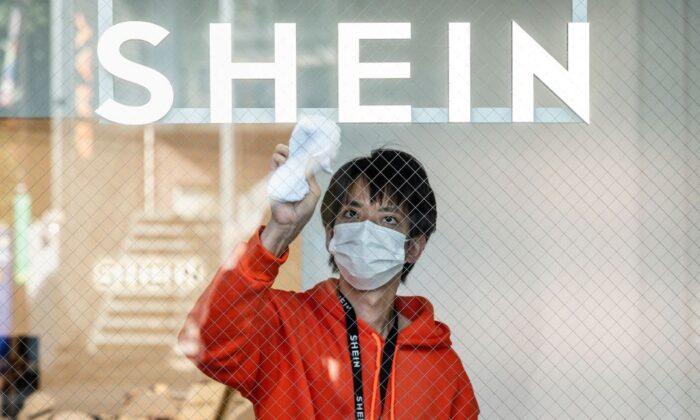U.S. senators wrote a letter to the chief executive of Shein, a China-based online fast fashion retailer, raising concerns about whether the company made use of cotton sourced from China’s Xinjiang region—a place notorious for pushing forced labor among Uyghur minorities.
De minimis level is the value below which imports are allowed to enter the United States with minimal government review and without duty.
The lawmakers pointed out that Xinjiang’s cotton lint production contributes to more than 85 percent of China’s total cotton production as well as 20 percent of total global output.
The letter expressed concerns that cotton fibers harvested in Xinjiang with forced labor might have entered Shein’s supply chain given the firm’s “large, decentralized network of suppliers.”
Importing Products Made From Forced Labor
The letter notes that cotton is designated as a “high priority sector” in the statute for enforcement of the Uyghur Forced Labor Prevention Act (UFLPA). which went into effect on June 21 last year.The act expanded the provisions of Section 307 prohibiting any imports into the United States of any product that is mined, produced, or manufactured wholly or in part by forced labor.
UFLPA established a rebuttable presumption that items coming from the Uyghur region are prohibited by Section 307 and as such banned from entry into the United States. This applies to any item that includes inputs made in Xinjiang.
The letter asks Shein to answer certain questions within 30 days of receipt of the letter, which includes whether the cotton fibers used to manufacture its garments are sourced from Xinjiang; how the firm ensures that garments are produced without forced labor; the number of supplier audits the firm has conducted; and so on.
Forced Labor in China
A top UN expert on slavery had said in a report released last year that it was “reasonable to conclude” members of minority groups like Uyghurs and Kazakhs were subjected to forced labor in China’s Xinjiang region.To end this human abuse, he asked for a ban on all products made in China. “This is the only way that we can stop the forced labor until China stops the genocide—until they can allow independent investigators to go into China to go into East Turkistan, to confirm that it’s not using it,” Hudayar said.
Other groups like Falun Gong adherents are also subjected to forced labor in China. Two elderly Falun Gong adherents died at the beginning of January 2023 after years of being persecuted by the Chinese Communist Party.
The adherents were kidnapped, illegally sentenced, and imprisoned in forced labor camps, as well as tortured numerous times for holding on to their beliefs. Last year, at least 7,331 Falun Gong adherents were reported to have been abducted and harassed.





